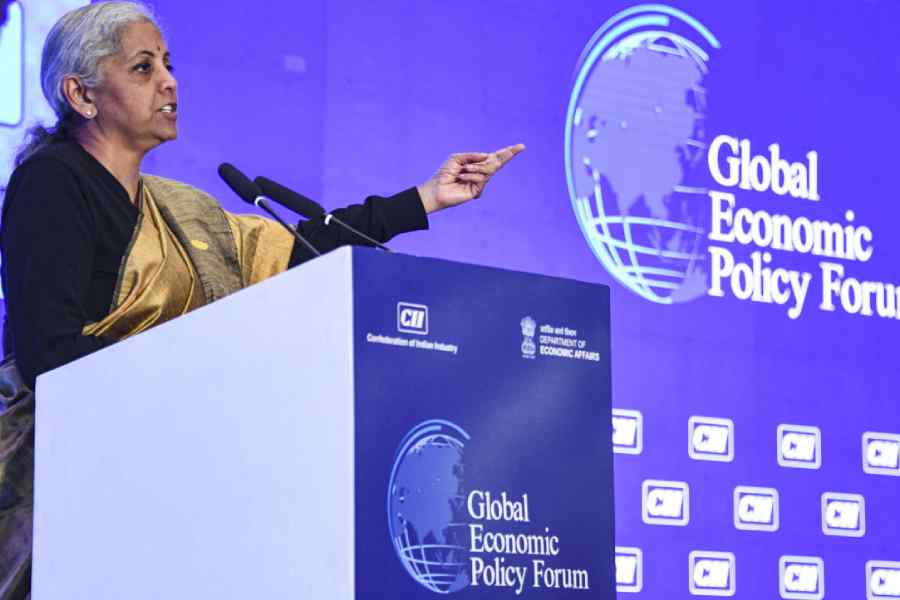Finance minister Nirmala Sitharaman on Thursday said the upcoming interim budget will just be a vote on account with no spectacular announcements — lulling speculation that the Modi government might be loath to pass up the opportunity to slip in a few freebies and entice the voters before the elections around May.
A full Budget for the 2024-25 fiscal would be presented in July next year by the new government elected after the April-May general elections, she said at the CII Global Economic Policy Forum.
“I am not going to play a spoilsport, but it is a matter of truth that the February 1, 2024, budget that will be announced will just be a vote on account because we will be in an election mode. So the budget that the government presents will just be to meet the expenditure of the government till a new government comes to play,” she said.
“No spectacular announcements come in that time (in a vote on account). So you will have to wait till after the new government comes in and presents the next full budget in July 2024,” Sitharaman said in reply to a question on whether she would announce a “supercharged budget” in February.
This was not the case in 2019 when stand-in finance minister Piyush Goyal presented the interim budget before the general elections.
Traditionally, a vote-on-account is an authorisation for incurring certain expenditures required till a new government takes office. Governments in the past have refrained from making any major policy announcement during the vote- -on-account, but there is no constitutional bar from making big announcements.
At that time, the Modi government had broken with over 70 years of parliamentary convention and used the interim budget to offer massive tax breaks to the lower middle class, cobbled a Rs 75,000-crore farm package and announced a mega pension scheme for unorganised workers as it looked to harvest votes.
Goyal had announced that taxpayers with an annual taxable income up to Rs 5 lakh would get a full tax rebate and would, therefore, not have to pay any income tax.
“Even persons having gross income up to Rs 6.50 lakh may not be required to pay any income tax if they make investments in provident funds, specified savings and insurance,” Goyal had said.
The standard deduction was raised to Rs 50,000 from Rs 40,000 and the TDS (tax deduction at source) threshold increased from Rs 10,000 to Rs 40,000 on interest earned on bank and post office deposits.
Carbon tax
Sitharaman said any move by the developed nations to unilaterally impose a cross-border adjustment tax to meet their green commitments is morally wrong and goes against the interest of developing countries of the “Global South”.
She said the global thought process will have to be inclusive for countries in the journey to achieve green goals, rather than a “single mono-sided decision” to bring in a border adjustment tax.
“I want to make my industry green so I will impose on you a certain tax because you are coming up with non-green products and with that money I will make my industry green... Border adjustment tax logic just goes against the concerns of the global south.”
Her comments come in the backdrop of the European Union’s announcement to impose a carbon tax on imports from certain sectors.
AI collaboration
The FM has extended an invitation to the Indian industry, urging close collaboration with the government to facilitate the integration of Artificial Intelligence for enhanced productivity. Her call focussed on PPPs.










